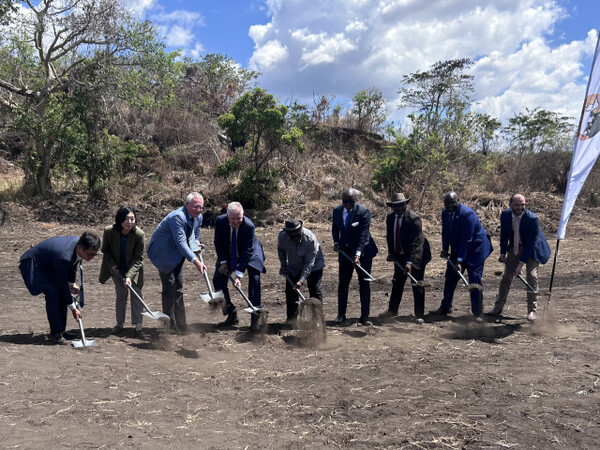Mining Other

POSCO International Commences Development of Tanzanian Graphite Mine

POSCO International has initiated the development of Tanzania’s graphite mine, which ranks second globally in terms of reserves. The company aims to establish a graphite supply chain by 2028, enhancing POSCO Group’s competitiveness in the secondary battery business while contributing to strengthening the domestic mineral resource supply chain.
POSCO International announced on Oct. 10 that it held a groundbreaking ceremony for the Mahenge mine in the Ulanga region of Morogoro Province, Tanzania, on Oct. 9 (local time).
The Mahenge mine contains 6 million tons of natural graphite reserves. This project is led by Australian resource development company Black Rock Mining, with POSCO Group participating as a strategic partner. The project is part of the Minerals Security Partnership (MSP) initiative led by major countries including the United States, South Korea, Japan, and the European Union (EU). The MSP, a multilateral consultative body aimed at ensuring stable supply of critical minerals, is expected to contribute to stabilizing the global supply chain of essential minerals.
Graphite is a crucial material for producing anodes in electric vehicle batteries. Currently, China dominates over 70% of the global supply, making supply chain stability a global issue. Recently, there has been a growing movement among major countries to reduce dependence on the Chinese supply chain.
POSCO Group entered the Mahenge graphite mine development in 2021 when POSCO Holdings invested $7.5 million (approximately 10.6 billion won) in Black Rock Mining. Subsequently, POSCO International strengthened cooperation by signing a first-phase graphite supply contract for 30,000 tons annually in 2023, followed by a second-phase contract of the same scale the following year.
When commercial production of natural graphite begins at the mine in 2028, POSCO International will receive a stable supply of 60,000 tons of natural graphite annually for about 25 years. The secured graphite will be used in POSCO Future M’s anode production, significantly increasing the self-sufficiency rate of secondary battery material raw materials within the group. This is expected to enhance POSCO Group’s competitiveness in secondary battery materials while playing a crucial role in improving the raw material self-sufficiency rate of the domestic battery industry, national mineral security, and stabilizing the global supply chain.
Particularly, as the United States decided to impose a 93.5% anti-dumping tariff on Chinese graphite, POSCO Group has an opportunity to increase its market share in the anode market previously dominated by China. Including existing tariffs, the total tariff imposed on Chinese graphite could reach up to 160%. This measure is expected to further increase the need for supply chain diversification among major governments and global automakers, strengthening POSCO Future M’s position.
Through this African graphite mine development, POSCO International has expanded its resource development portfolio and enhanced its global resource development capabilities. The company plans to strengthen cooperation with major mineral suppliers to improve the stability of its secondary battery material supply chain in the future.
A POSCO International official stated, “The development of the Mahenge mine is a significant opportunity for POSCO International to expand its resource development capabilities in Africa,” adding, “We hope that the Mahenge graphite mine development project will contribute to strengthening POSCO Group’s competitiveness in the anode business, stabilizing the global battery material supply chain, and further enhancing domestic mineral security.”
John de Vries, CEO of Black Rock Mining, said, “This groundbreaking ceremony signifies that the Mahenge project has entered the full-scale implementation phase,” adding, “Close cooperation with POSCO International made this achievement possible.”












